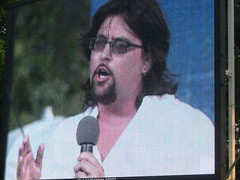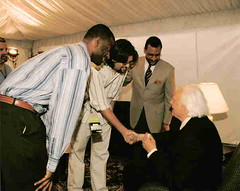They were young and inexperienced, and they changed the world
I'm finally reading 1776, after several false starts the last two months, and am up to page 90 or so. One common theme has emerged time and again in the book, besides the obvious George Washington heroics (he of the "conspicuous courage under fire and a marked ability for leadership.") Washington's success as a general, and by extension the success of America's first revolution, was due in large part to his willingness (born largely of necessity) to trust young and inexperienced innovators. Men like Nathanael Greene, who,
"at age thirty-three, ... was the youngest general officer ..., and by conventional criterion an improbable choice for such responsibility. He had been a soldier for all of six months. Unlike any of the other American generals, he had never served in a campaign, never set foot on a battlefield. He was a foundryman by trade. What he knew of warfare and military command came almost entirely from books " (p. 20).Henry Knox was another. It was Knox who suggested retreiving the canon at Fort Ticonderoga (and trekking them, at more than 120,000 pounds, three hundred miles in the dead of winter through snow, mountains, and ice) to reinforce the seige on Boston.
"That such a scheme hatched by a junior officer in his twenties who had no experience was transmitted so directly to the supreme commander, seriously considered, and acted upon, also marked an important difference between the civilian army of the Americans and that of the British. In an army were nearly everyone was new to the task of soldiering and fighting a war, almost anyone's ideas deserved a hearing" (p. 60).When Knox had "fulfilled all expectations" merely two months later,
"The twenty-five-year-old Boston bookseller had proven himself a leader of remarkable ability, a man not only of enterprising ideas, but with the staying power to carry them out. Immediately, Washington put him in charge of the artillery" (pp. 82, 85).
Faithful in little, Washington increasingly trusted them with more.
"In Greene and Knox, Washington had found the best men possible, men of ability and energy who ... would never lose sight of what the war was about, no matter what was to come" (p. 111).By contrast,
"The British military system, wherein commissions were bought and aristocrats given preference, denied many men of ability roles they should have played" (p. 78).













0 Comments:
Post a Comment
<< Home